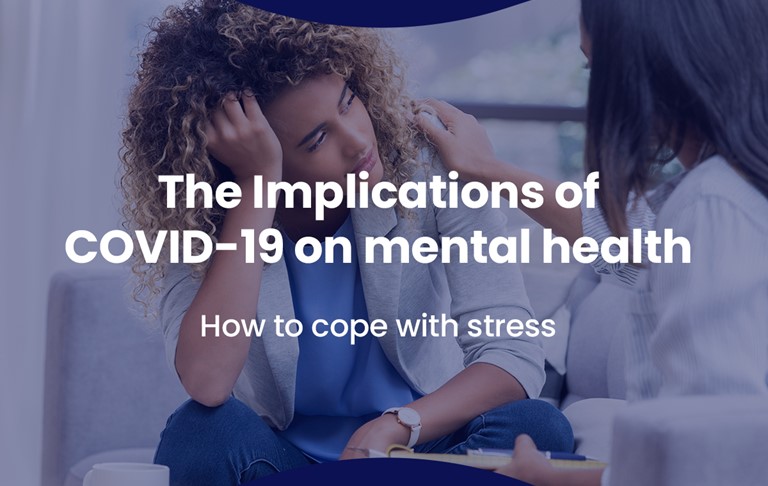The Implications of COVID-19 for Mental Health and how to cope with stress
Throughout the world, the public is being informed about the physical effects of COVID-19. For some, the symptoms will pass within days or weeks however for other, the effects can last for weeks or even months. This is called long COVID.
As medics around the world focus on understanding the clinical features and management of the outbreak, very little concern has been expressed over the effects on one’s mental health and how the pandemic has had a major effect on our lives. For many of us, the challenges caused by COVID-19 can be stressful and overwhelming. Rapid human-to-human transmission of the coronavirus resulted in the enforcement of social distancing and whilst this may prevent the spread of such virus, this can cause us to feel isolated and lonely, increasing both stress and anxiety for many individuals across the world. To overcome this, it is important that we learn how to cope with stress in a healthy way to prevent our mental health from deteriorating in the long term.
What are the symptoms of long COVID?
People with long COVID may often experience one or more of the followings symptoms:
- Fatigue
- Difficulty sleeping
- Anxiety and depression
- Tightness or pain in the chest
- Joint or muscle pain
- Feeling sick, diarrhoea, stomach aches or loss of appetite
- A high temperature, cough, headaches or sore throat
- Dizziness
- Heart palpitations
- Problems with memory or concentration
Healthy ways to cope with stress
It is important during this tough time to take care of your mind as well as your body and implement self-care strategies to keep you on top of your mental health.
Keeping up with your daily routines
Your daily routine may be affected by the coronavirus in different ways but it is important to ensure your daily structure remains in place. It is important to pay attention to your own needs and feelings, especially during times of stress. For example, you could:
- Exercise regularly
- Keep your regular sleep routines
- Maintain a balanced diet
- Read a book
- Utilise online exercise or yoga classes
- Avoid excessive use of alcohol and drugs
Stay connected to family and others
Although COVID may limit our face to face contact with others, there are plentiful other ways to keep in touch with those we love to build support and strengthen our relationships. For example:
- Social media
- Video calls
- Phone and text messages
Helping others cope
Taking care of others is just as important as taking care of our own mental health. During times of social distancing, it is important to still stay connected to our family and friends and helping them cope with stress through phone calls and video chats so they also feel less isolated.
Talk about your worries
It is normal to feel worried, scared or even helpless during the global pandemic. It is essential that you talk about your concerns with others or get further help and support when you feel you need it.
Talking about your feelings is not a sign of weakness but a way to take charge of your wellbeing. Talking can be a way to cope with a problem you’ve been carrying around in your mind and help you feel more supported and less alone.
If you are dealing with mental health problems during COVID-19, just remember you are not alone. Getting help can help build your resilience and help you cope better with anxiety and stress in the long term. All it takes is the first step.

